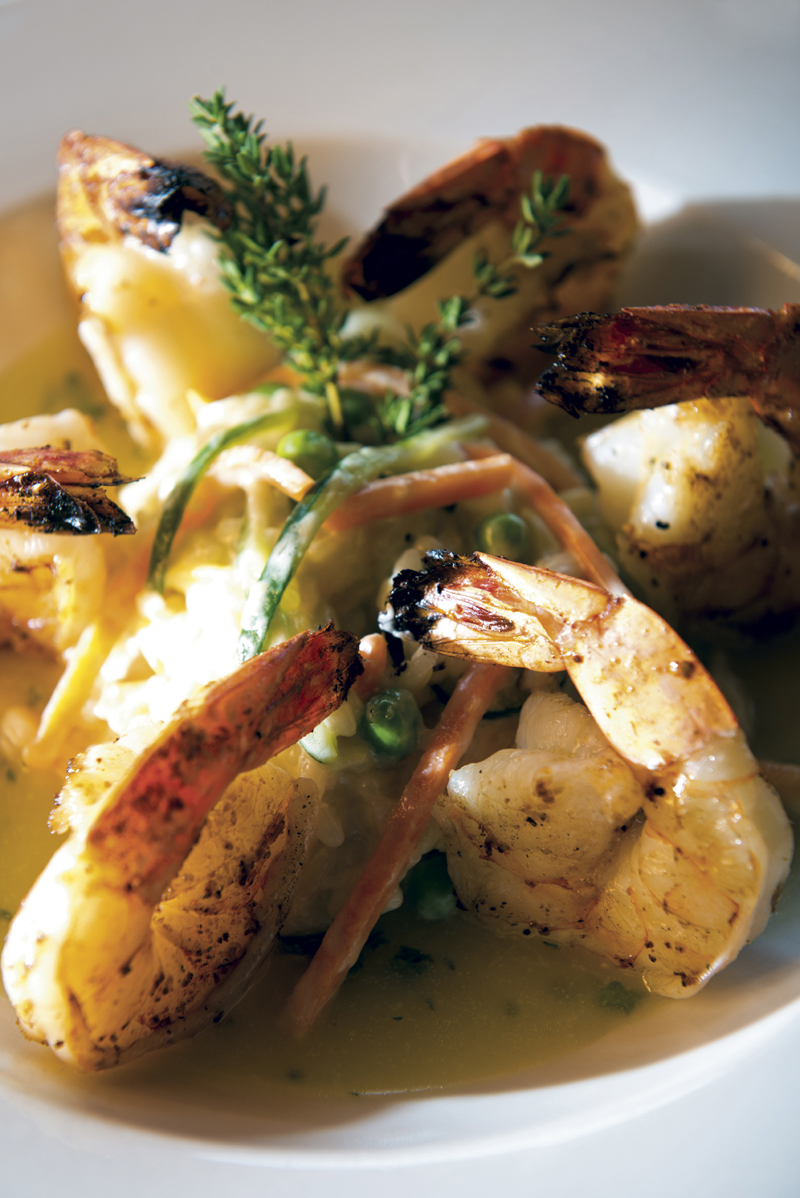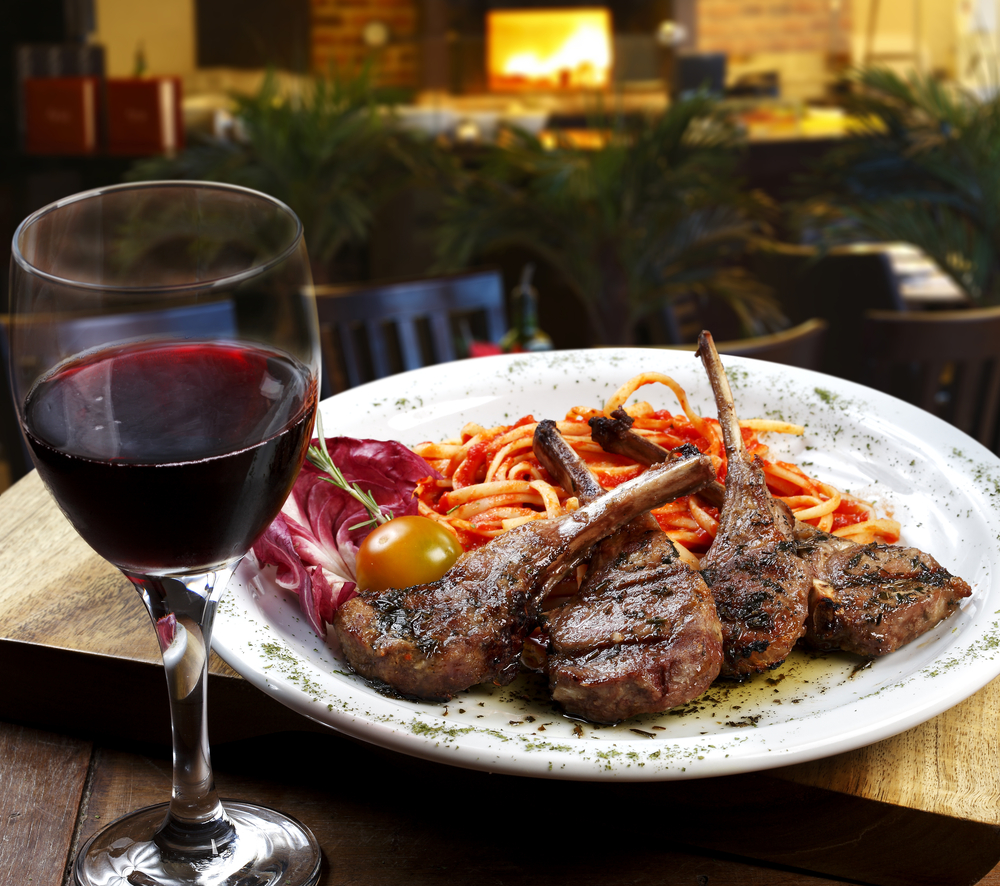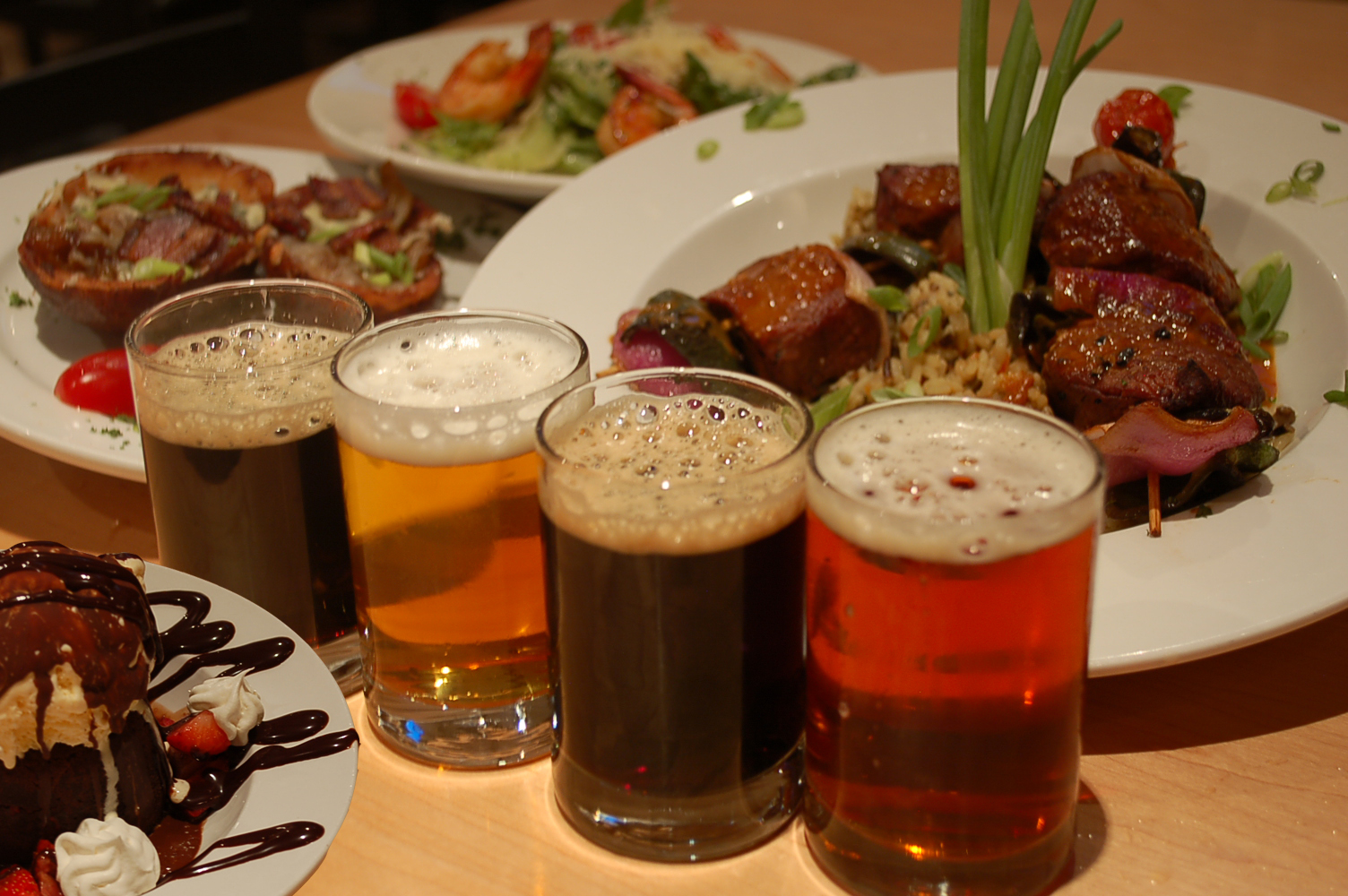Chef John Plymale has been with Porcini since before its 1992 opening. Twenty-plus years later, the restaurant seems like an extension of the chef himself.
A thoughtful and affable guy, Plymale sat down for a conversation before the ritual of a nightly staff meal, which he cited as one factor in the staff’s dedication and longevity. “We can take fifteen minutes out of our crazy day,” Plymale says, “and sit down together and eat and talk and have that bond.”
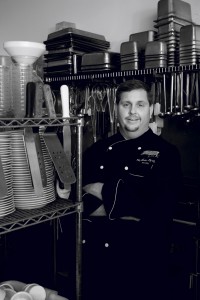
Age: 49
Current Restaurant: Porcini
Previous Restaurants: The Terrace, Afro-German Tearoom, various Grisanti properties
Neighborhood (current): Oldham County
Hometown: Louisville (high school: Atherton)
Spouse: Kim Plymale
Kids: Daughters Leah (19) and Kara (14)
Favorite Hobbies: Tournament fishing, gardening
Favorite Cookbook: Camille Glenn’s Heritage of Southern Cooking and other “old-school, indigenous Kentucky cookbooks”
Favorite Kitchen Gadget: His mind
What is your first food memory?
“Mom and Grandma. I remember Grandma making a white chiffon cake with a white icing and coconut and a fantastic lemon curd she’d put between the layers. I can almost taste that cake and her lemon meringue pie. Holidays, everybody’d be watching ballgames, but I’d kind of be watching the cooking.”
Who has influenced your cooking the most?
“My grandmother, Elizabeth Cull, and my mother, Jeanne Gibson, were my biggest starting influences.”
How about professionally?
“Chef Dominic Serratore at Casa Grisante. Deedee Stokes at Afro-German Tearoom — she was an amazing cook. That restaurant was a 100 percent scratch operation, and I learned a lot about technique, about organization in the kitchen. Master pastry chef Bernd Gronert [at Johnson & Wales University’s culinary school in Providence, R.I.].”
What’s your favorite go-to ingredient?
“Garlic. And olive oil.”
Is there a guilty-secret ingredient in your kitchen—something you’d rather not be spotted using?
“We stay pretty true to our roots. It’s very seldom we’ll use frozen or processed items. We’re, I’d say, a 96 to 98 percent scratch operation here. You can see by all this coming in.” [He gestures to indicate the steady stream of deliveries.]
What’s your greatest strength in the kitchen?
“My ability to stay even-keeled under pressure. I almost thrive on it. It’s almost an adrenaline rush. It’s why I still enjoy being on the line every night.”
What’s your downfall?
“Spending too much time on the day-to-day operations side and maybe not enough on the research and development part of it.”
What cooking skill required in your kitchen is the most difficult to master?
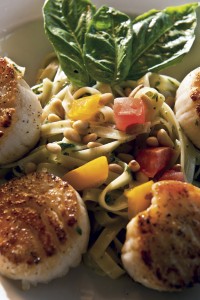
“Having been here 22 years, I don’t know that there’s a technique out there that we don’t employ in our everyday cooking.”
Dumbest thing you’ve ever done in a kitchen?
“I was leaving in a hurry for a U of L football game and I’d left some bacon in the oven. I went back to take it out and the oven doors hit the tray, it flew up in the air and bacon came down all over my sweater. The hot grease soaked through the sweater and burned my forearm, and when I pulled the sweater off it popped the blister. It was pretty bad.”
The last time you had a real nightmare of a night…
“It was our opening week of Porcini and we were supposed to be doing a soft open with about 75 guests the staff had invited. But all these people started showing up, and they [the host staff] let them in. We ended up serving over 200 people. I had a couple cooks walk out on me because they couldn’t handle the pressure. It was pretty wild.”
If you had to work for one chef in the world, who would it be?
“Alice Waters. Her approach to food is a lot like mine. I’d like the think we’d have a good relationship.”
What do you aspire to?
“I love the community I work in, the facility I work in. I have a great owner, great staff. [But] I aspire to dedicate more time to my wife. There’s a lot of birthdays, a lot of anniversaries I haven’t been able to be there for.”
If you could cook a meal for anyone, who would it be?
“My family and friends. Twice a year a lot of chefs locally take a vacation together. We cook for each other. It’s not that we try to outdo each other; we just want to do something nice for each other.”
What music was playing in the kitchen last night?
“Jimmy Buffet.”
What was the last book you read?
“Cover to cover? Kitchen Confidential. I also read Jesse Stuart’s The Beatinest Boy. My grandmother gave me that book.”
What’s in your fridge at home?
“Usually some type of pasta left over from our evening service here at the restaurant. Colonel Newsom’s country ham. Neuske’s bacon. Some pomegranate. A lot of fixings for my daughter’s lunchbox.”
Is there anything in that home fridge you’d rather not admit to having?
“There’s probably something moldy back in the corner.”
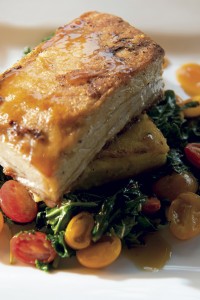
What food is your guilty pleasure?
“Anything anyone else cooks for me instead of the other way around.”
Your favorite quick meal to prepare at home?
“Anything grilled. Pork or a nice steak.”
Which seasonings don’t you respect?
“I try to use fresh herbs over dry herbs any chance I get.”
Which are underrated?
“Saffron.”
Best cooking tip for a novice?
“Make sure to have all your mise en place in place before you start something you’re not familiar with.”
What do you think is the next worthwhile food/dining trend?
“We’re in the midst of it right now. The local artisanal product. The artisanal cheese, the farmers’ market, your own garden or orchard. The public has become so well educated with the Food Network and cooking shows. They’ve brought a lot of people back into the kitchen. In the seventies, eighties, early nineties it was all about convenience. I’d like to see everyone sit down for the family meal every night and talk over the day over good food.”
Besides Porcini, what is your favorite restaurant in Louisville?
“Corbett’s. Dean is a very good friend. And in Shelbyville, Science Hill Inn. We’ll go there for Sunday brunch.”
Who are your favorite chefs?
“My good friends. Chef Dean Corbett, chef Dave Moeller, chef Michael Cunha, chef Mac McBride. Josh Moore. Alex Perez.”
Other than your own restaurant, what’s the first place you’d take an out-of-towner?
“Science Hill Inn. It’s a good representation of the food of Kentucky.”
Give us one reason Louisville should be considered a culinary destination.
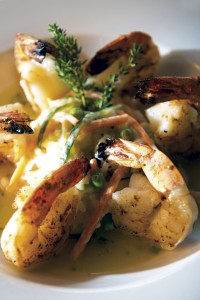
“You have to look at the sheer volume of restaurants. Some people would probably say we’re almost a saturated market. The degree of good quality establishments out there has increased twofold over the last 10 years. There’s a lot of young talent out there that are mixing up our culinary scene. Even some of the food trucks.”
Your last food-related “wow moment” was..?
“My sous chef spent a lot of time with a braised pork belly that’s new to the menu. Sautéed organic greens; a polenta cake with caramelized shallots, fontina and parmigiano; pork belly; and a blood orange agrodolce.”
Iron Chef Louisville: Who do you not want to battle?
“I don’t think professionally there’s anybody I wouldn’t want to go up against. Personally, I wouldn’t want to go against an old employee or good friend because one of us would lose, and hopefully it would be them. It’s almost like a fraternity here; you’d never want to have anybody humiliated because they lost to you. [But] I’m never afraid of competition. I think it drives the world.”
What’s your last meal on earth, if you had the chance to choose?
“A meal my mother and grandmother prepared for me. It wouldn’t even matter what it was; it’s just the company.”



















